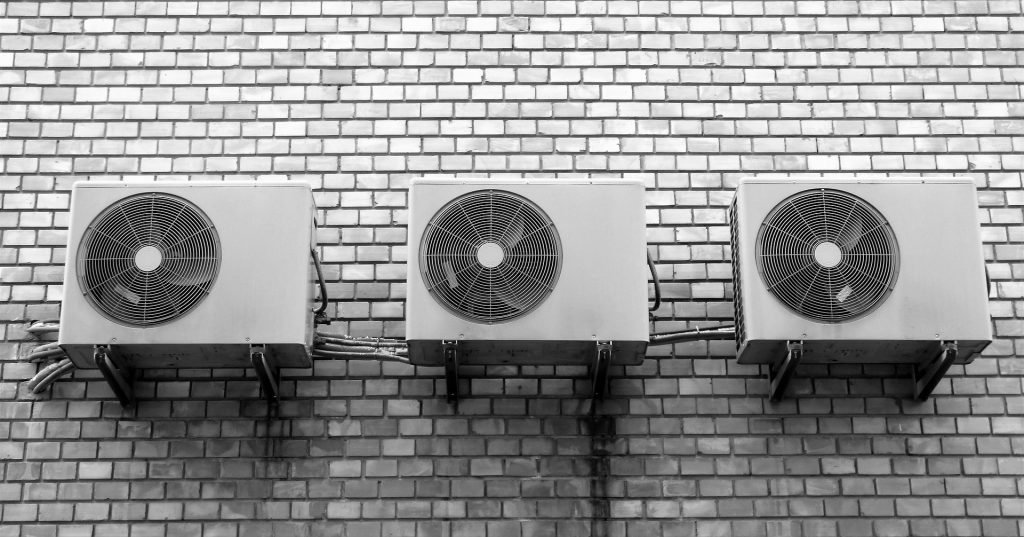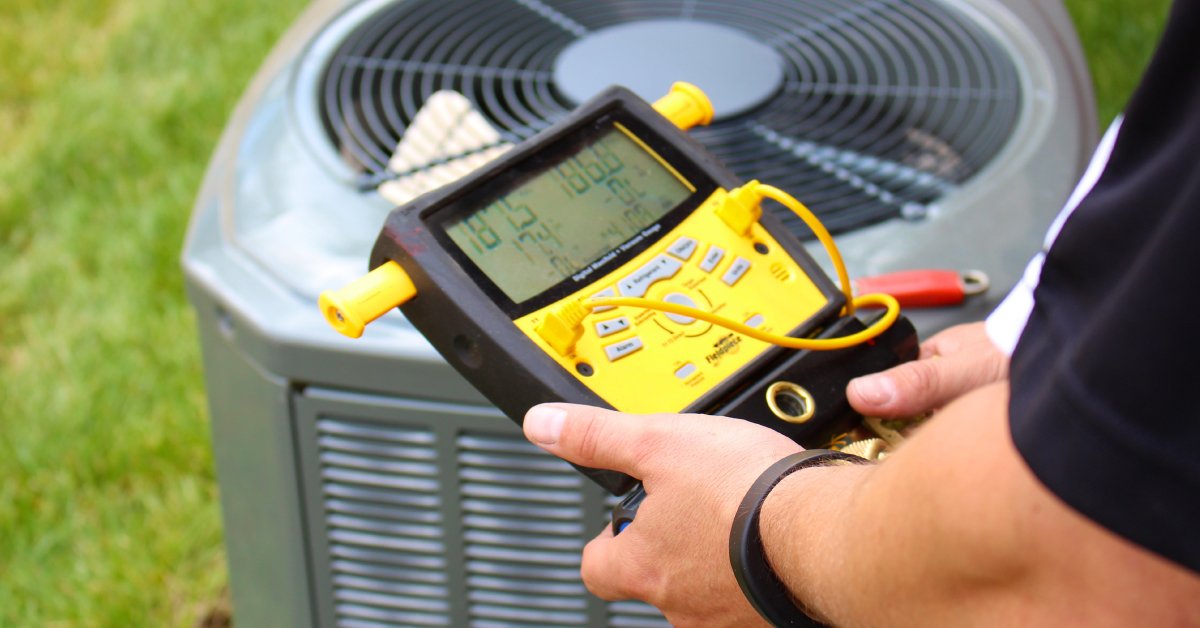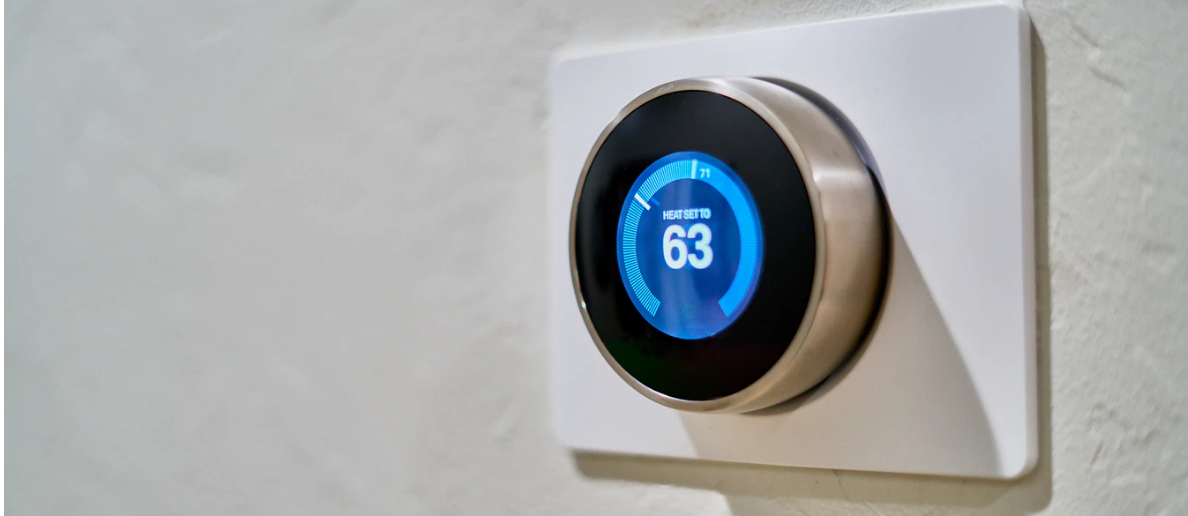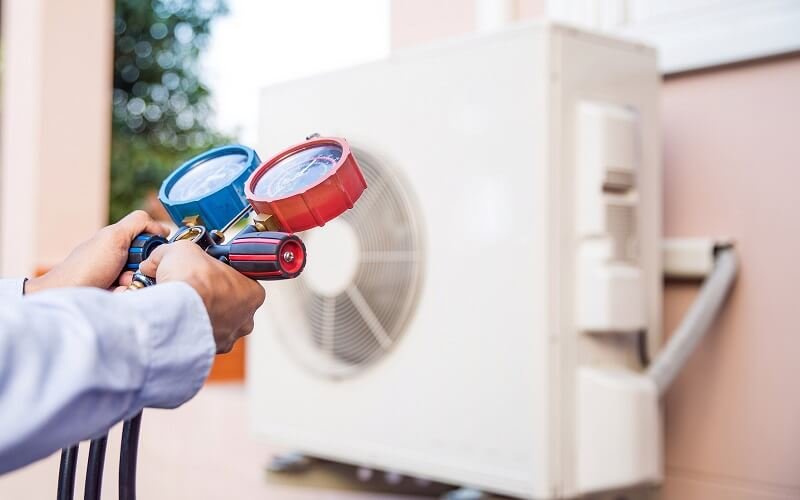RESIDENTIAL AND COMMERCIAL HVAC SERVICES IN HOUSTON, TX
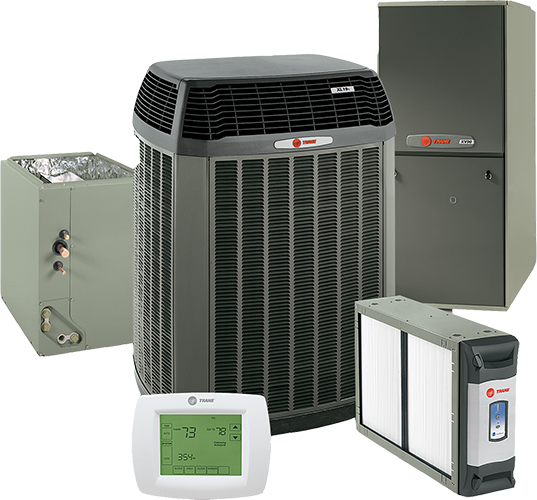
The Texas climate can be particularly challenging. Due to weather extremes, living in the Houston area is nearly impossible without a reliable HVAC service. The months of June, July, and August bring scorching heat, requiring non-stop air conditioning and cooling systems to keep the house comfortable. During the unpredictable weather in the fall, homeowners need to cool their homes during the day and heat them at night.
To ensure optimal AC and gas furnace services in Houston, TX, residents need a reliable air conditioning contractor who understands how to efficiently complete the job. Dipzoc is one of the best providers of HVAC services in Houston. We have over a decade of experience with air conditioning, heating, and ventilation systems.
Our knowledgeable technicians maintain and repair AC units and furnaces efficiently and carefully to ensure comfort and peace of mind. Keep the heating and air conditioning system running with our routine maintenance, extensive troubleshooting, and first-rate AC repair methods.
If an air conditioning replacement or heating repair is needed, don’t hesitate to call us to benefit from our expert service and attention to detail.
AIR CONDITIONING & HEATING
AC INSTALLATION
Houston and the surrounding areas are accustomed to extreme heat and weather conditions. With the summer temperatures squarely in the high 90s, it becomes virtually impossible to live in an enclosed space without air conditioning and ventilation systems. A dependable cooling solution can last for well over a decade, ensuring comfort for the entire family or the workplace.
AC CIRCUIT CONTROL BOARD
An HVAC circuit board is a complex element that enables communication between the thermostat and the HVAC system. The thermostat detects the indoor temperature and sends a message to the control board, which then translates the messages into electrical voltage and turns on the appropriate HVAC components according to the thermostat’s instructions.
HEAT PUMP
Heat pumps are capable of heating and cooling spaces indoors using electricity. They do not generate heat themselves. Instead, they transfer existing heat from one space to another using a heat source. Heat pumps work similarly to air conditioners when they are used for cooling.
AC REPAIR & MAINTENANCE
An HVAC can last for at least a decade, working tirelessly to either cool down or heat the home. But if it fails during the scorching Houston summer heat, homeowners are left with only a few possible options. During the peak of summer, there’s very little chance to spend several days with a broken AC and have any comfort or relaxation. A reliable HVAC repair service helps homeowners escape the heat and humidity.
AC REFRIGERANT LEAK REPAIR
An air conditioning system uses refrigerant to cool a space, but few know its purpose or what type of refrigerant their air conditioning system uses. AC refrigerant is a compound capable of transitioning from liquid to gas and from gas to liquid. During the process, it absorbs heat from indoor air and dispels it outdoors with the help of other AC components.
EVAPORATOR COIL
In Houston, property owners are accustomed to turning on their air conditioners during the hot summer and never question how they work. Simply put, air conditioners take the heat from the indoor air outside with the help of refrigerant that circulates in their cooling coils.
AC FAN MOTOR
The air conditioner’s fan motors are arguably the system’s hardest-working element. The fan motors power the AC’s fans, ensuring that warm air is pulled out and cool air is pushed into the space. Therefore, without these components, the unit won’t work.
HVAC BLOWER MOTOR
The blower motor is a fundamental part of an HVAC system as it keeps the unit’s fan in motion. The fan is crucial in moving the hot or cold air through the system. From heat pumps and air conditioners to electric and gas furnaces or mini splits, a blower motor is necessary to push the warmed or cooled air throughout the home or commercial space.
CONDENSER COIL
The condenser coil, typically found outdoors, is responsible for removing the heat the refrigerant has delivered from the indoor air. As the pressurized hot vapor reaches the condenser coil, the heat is transferred into the surrounding air. The fan dispels the warm air, which speeds up the process. As the refrigerant cools down, it transforms into liquid and circulates back into the evaporator indoors.
OTHER SERVICES
DUCT REPLACEMENT
Damaged or ineffective ductwork in the house or building can lead to energy losses and even health and safety hazards. If left unchecked, broken ducts can leak harmful gasses or reduce air conditioning and heating efficiency throughout the home. Duct repairs can be an effective solution that quickly takes care of the problem, but they are no guarantee the problem won’t reoccur.
Duct replacement is an involved and time-consuming process, but it might be necessary depending on the house’s condition. In most cases, the ducts are old and worn out, or there have already been a few attempts to repair them. It can be more cost-effective to replace them with modern ducts that provide a better seal and are made from more durable materials.
Our duct replacement service begins with a thorough inspection to ascertain the source and the extent of the problem. We won’t replace a working duct that only needs minor repairs to operate flawlessly for a few additional years. Dipzoc has your back, and we care about the house and the family budget above all else.
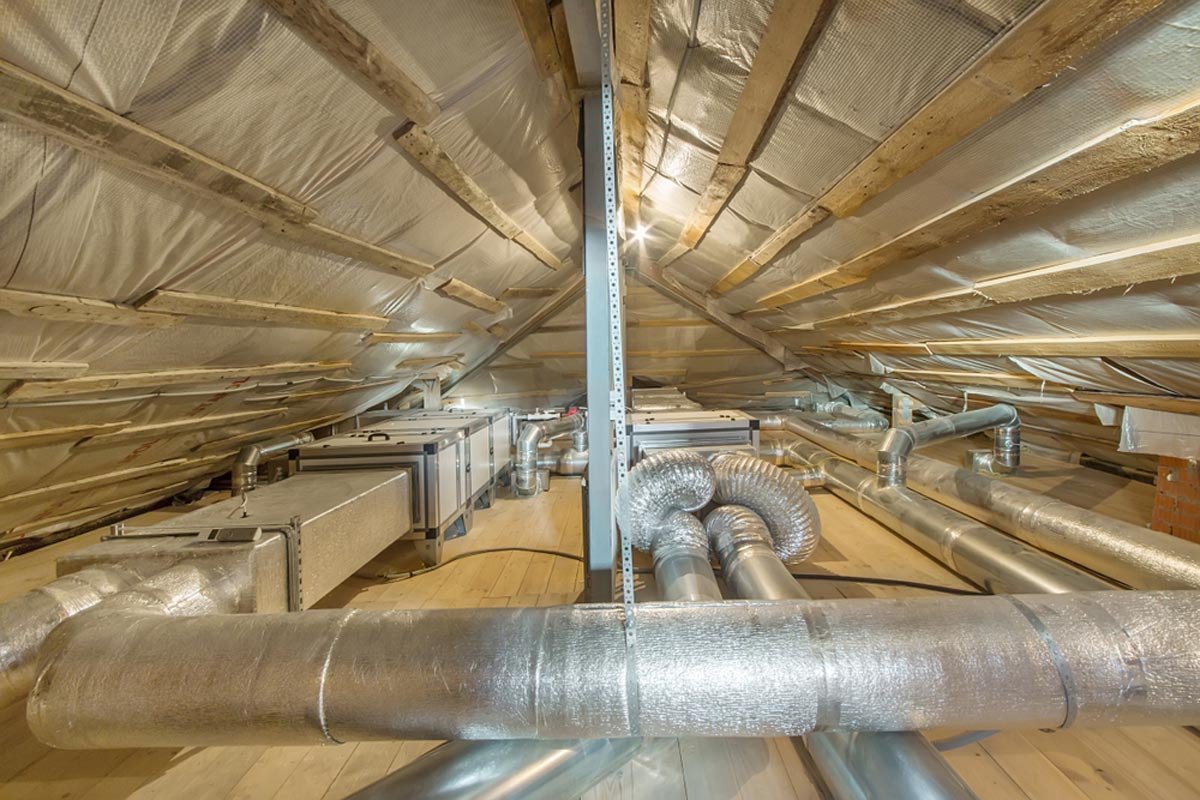
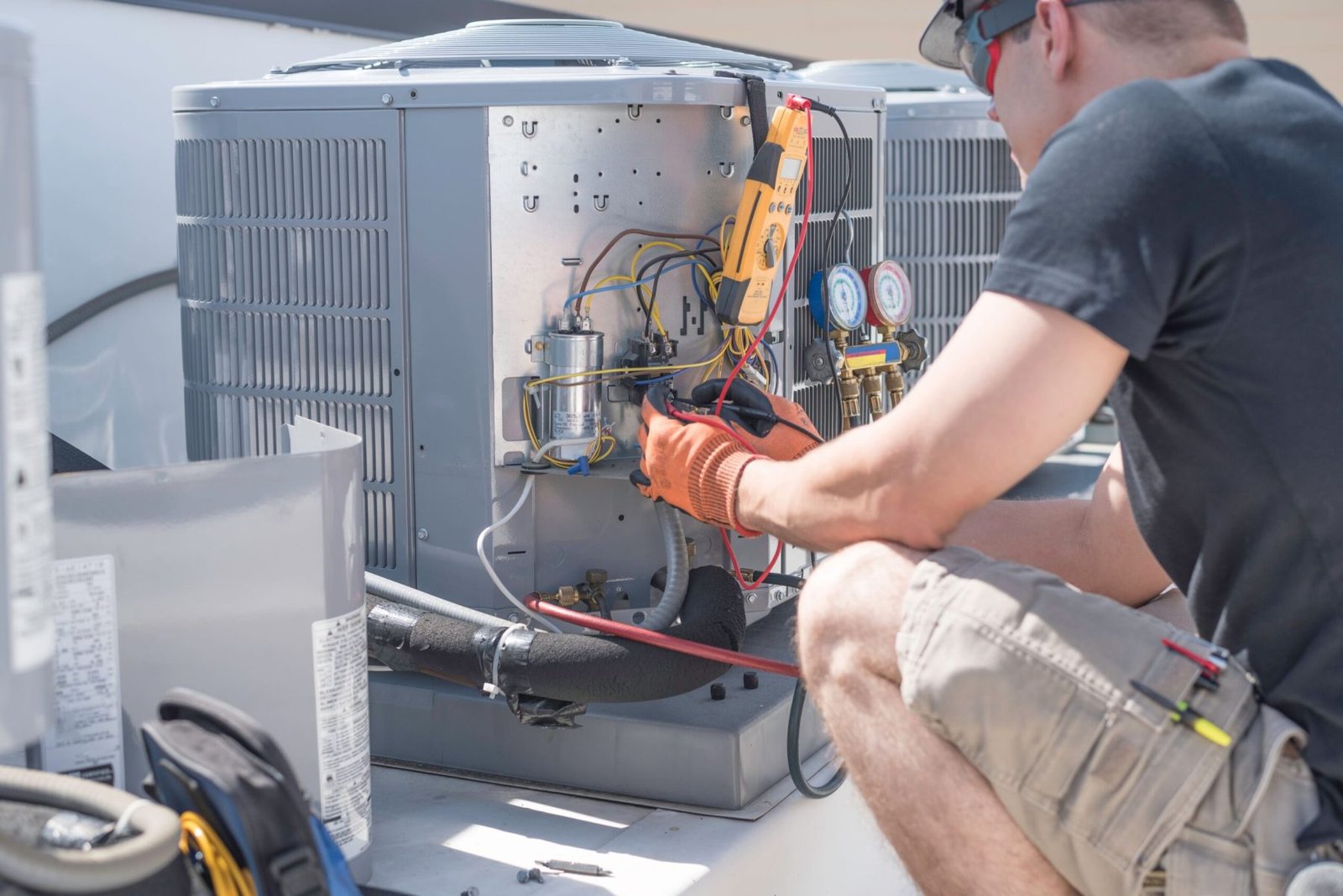
HVAC PARTS
HVAC systems have various parts that need to work in tandem to keep the rooms cool during summer and the heating working perfectly in the winter. However, malfunctions are all but inevitable, and sometimes a part breaks and needs to be replaced.
Keeping a store of possible replacement parts can be a hassle at best for a homeowner. No one should be expected to keep a supply of replacement parts for appliances in their home if one of them breaks. Some parts can be expensive and challenging to obtain, and stores might even run out of them due to recalls and manufacturing stops.
DIPZOC KEEPS A SUPPLY OF ESSENTIAL HVAC PARTS IN STOCK FOR VARIOUS MAKES AND MODELS.
If there’s an HVAC issue, we most likely have the replacement item in stock or know how to obtain it quickly. Our team is equipped to service all HVAC types and most models. Our priority is to repair any problem promptly and efficiently and deliver exemplary customer service with every appointment.
COMMERCIAL HVAC EXPERTS IN HOUSTON, TX
Commercial HVAC projects can be extremely challenging to design and execute properly. With higher foot traffic and increased requirements, commercial HVAC systems have modernized much faster than residential counterparts. While many HVAC experts claim they can handle the increased workload and demands, the truth is that there are very few technicians capable of working on commercial units.
Since commercial buildings are busy places during working hours, many more people complain when something goes wrong. While HVAC units are robust and reliable, issues are inevitable. When that happens, you need an expert service to deliver a solution quickly and repair any problems.
Dedicated cooling, heating, and ventilation solutions are usually a significant portion of an office’s operating budget.
It is imperative for business owners to avoid having essential utilities turned off due to a faulty HVAC unit. Any problem with the system is an emergency in the business world, and we can solve the problem.
COMMERCIAL HVAC INSTALLATION
Commercial HVAC systems are more intricate and complex than residential systems. They require more attention, maintenance, and upkeep to operate at peak efficiency. Commercial HVACs are also a significant budget investment expected to last for the next 15 years or more. All of these factors make commercial HVAC systems more challenging than the average contractor can handle.
Professional HVAC installation requires careful planning, measurement, and design. Large buildings have vast space requirements and foot traffic that require dedicated ventilation and air conditioning to keep the indoor climate carefully monitored and controlled.
There are a few main types of cooling systems in use today. Split-unit air conditioning can be an effective solution for shorter buildings and doesn’t require a lot of setup to get the rooftop condenser working. A chilled water-air system can be a better solution for multi-story buildings that require more air ventilation and circulation. The operating demands for these might require a cooling tower to reduce energy costs and help lower humidity levels in certain workplaces.
Commercial heating solutions rely on similar concepts to residential buildings but are taken to a larger scale. The boilers, heat pumps, and furnaces for these buildings have to work for a much larger surface. They also need to heat the building quicker due to significant heat losses and different working times.
Dipzoc has the experience and technical staff required to design, oversee, and implement any HVAC system into a commercial building. We will take utmost care to abide by the industry standards and work with only the best manufacturers. Our clients can expect perfect HVAC solutions tailored to their specific operational needs and office requirements. With Dipzoc at the helm of commercial HVAC installation, there’s no room for error.
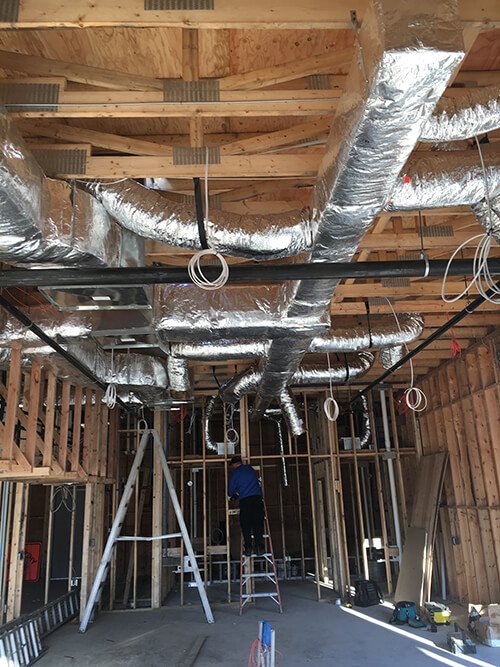
OUR BLOG
FREQUENTLY ASKED QUESTIONS
Since air conditioners cannot cool down a home in minutes, don’t allow the home to become uncomfortably hot. Air conditioners are designed to cool for a 20° change in temperature. For example, 100° air temperature would only be cooled to about 80°. Turning the AC off when leaving the house is inefficient and won’t keep the homeowners comfortable. It’s better to turn the temperature down to a manageable level so that the system does not have to work extra hard to cool the home down.
Change the air filter at least once every six months to help extend the life of the HVAC system. Changing the filter every three months is even better. All the air in a home circulates and re-circulates through the same filter. An air filter removes dust particles to keep the air the residents breathe clean, and when the filters become clogged, the system is less efficient and will cost more to operate. The system could fail if the filter is left unchanged for too long.
A tune-up is when an HVAC professional checks the critical components of the HVAC system and makes adjustments to keep it operating efficiently.
To ensure a system works efficiently, have it inspected and tuned up twice a year, preferably at the beginning of the heating and cooling seasons.
Start with the utility company; they can significantly help. Divide an energy bill by the square footage of livable space in the home. Calculate how much it costs to heat or cool each square foot. After calculating both values, ask the utility company what the area’s average cost per square foot is for that same period. Then compare.
A programmable thermostat will save a homeowner money. Programmable thermostats are designed to auto-adjust the temperature throughout the day, saving between 15 and 25% on cooling costs. When an HVAC technician installs the thermostat, ensure they place it in an area where the temperatures don’t fluctuate.
There are circumstances when A homeowner should consider replacing their HVAC system rather than replacing it, including:
The system is more than seven years old and requires extensive repairs frequently
The system when it stops working or fails to cool all areas of the home.
The system runs excessively or constantly turns on or off, producing high utility bills
Most systems last about 10 to 20 years, and as the unit ages, production efficiency can lessen. The unit may be louder and need more repairs. When a unit shows its age, the homeowner can keep repairing the system or decide to replace it.
Replacing only the outdoor unit will reduce the initial investment cost; however, it could cost more in the long run in utility costs. It’s best to replace the indoor cooling coil with the outdoor unit.
Industry experts say that poorly installed ducts fail to heat or cool a home efficiently, costing the homeowner money. Before investing in a new system, call an HVAC expert to check the ducts.
Make sure that the air filter is clean. If it is not, then clean or replace it. Remove any debris or clutter from the area around the heater. Look over the heater’s service records; if, over the last year, there has not been a precision tune-up performed on the system, schedule one at the earliest opportunity.
Warm air rises and can sometimes cause a disparate difference between a home’s levels. To counteract that situation, the heating and cooling systems must be designed and installed correctly. If they were not installed to accommodate this phenomenon, some changes may be needed, including duct system modifications, an HVAC system, and zoning, including adding thermostats.
Most of the better-known brands are acceptable. The most crucial aspect of any heating and air conditioning system is not the brand but rather its proper installation. Installations that are appropriately designed and installed for easy maintenance will be winners. We work on all brands and pick the brand of equipment that best suits our customers’ needs and wants.
Modern heating and air conditioning systems are designed to be efficient. One way manufacturers achieve greater efficiency is to move more air. When more air is moved through the existing duct system, it makes a noticeable sound. If there are any holes or cracks in the duct system, it may whistle. Sound levels may be reduced by insulating ducts and plugging or sealing holes, gaps, and cracks.
When there are temperature disparities from room to room, it usually results from a poorly planned system. We can correct the situation by performing duct balancing, installing balancing dampers, a zoning system with additional thermostats, or even one or more additional HVAC systems.
Ensure enough combustion air is supplied to all natural gas appliances, including furnaces, water heaters, kitchen ranges, and gas clothes dryers. Don’t permit an automobile or truck to operate in an attached garage. Don’t operate portable propane heaters or cooking appliances in the home. Don’t operate small gasoline engines within the home or attached garage. Have us perform a combustion area zone test in the home. Install low-level Carbon Monoxide monitors with alarms in the sleeping room areas of the home.
CONTACT US
Questions? Concerns? Contact us today! Fill out our contact form here or feel free to call or text us at (251) 458-5956.
Location
9802 FORUM PARK DR APT 3296, HOUSTON, TX 77036
Hours
Monday-Sunday: 7AM to 6PM
Copyright © 2023

